
Caring for Opioid-Exposed Dyads: Child Welfare, Breastfeeding Policies and Zero Separation
-
Register
- Non-Member - $39
- Regular Member - $29
- Retired - $29
- Early Career Physician - $29
- Resident - $19
- Student - $19
- Associate - $19
- ASAM Staff - Free!
- International Member - $29
- Emeritus Member - $29
- Provisional Member - $29
- Fellow Member - $29
- Honorary Member - $29
- CRT Member - $29

Caring for Opioid-Exposed Dyads: Child Welfare, Breastfeeding Policies and Zero Separation
Recorded: Thursday, April 22, 2021 - Saturday, April 24, 2021
On-Demand Session
Overview
This 1.5-hour on-demand session from ASAM Virtual 2021 addresses the opportunities for growth in supporting comprehensive care for vulnerable birthing parents, newborns and families impacted by opioid use disorder as discrimination, racial inequities, socio-economic disparities and marginalization lead to isolation, under-treatment and compromised outcomes.
The opioid crisis in the midst of challenging COVID times has outlined opportunities for growth in supporting comprehensive care for vulnerable birthing parents, newborns and families impacted by opioid use disorder. Discrimination, racial inequities, socio-economic disparities and marginalization lead to isolation, under-treatment and compromised outcomes. Changes to the federal CAPTA law mandate that healthcare providers involved in the delivery or care of opioid-exposed infants notify the child protective services system and receive a plan of safe care. Practices vary widely and the responses of various systems to the needs of opioid-exposed dyads diverge, resulting in apparent conflicts among treatment practices, medical recommendations, and the policies and oversight provided by courts and child welfare services.
The target audience for this introductory level session includes physicians, nurse practitioners, physician assistants, other clinicians, researchers, residents, fellows, students, and counselors.
This session addresses the following ACGME Competencies: Patient Care, Interpersonal Skills, Systems Based Practice.
Learning Objectives
Upon completion, learners will be able to:
- Improve their medical knowledge about OUD, equity and child welfare, and understand how bias, discrimination and policies worsen both social disparities and maternal/family outcomes
- Identify models of care, evolving science and clinical practices relevant to the opioid-exposed dyad, breastfeeding and toxicology policies, COMPASSION and “zero separation”
- Increase awareness of policies and practices of child welfare, breastfeeding and “no wrong door” services to improve evidence-based approaches for the opioid-exposed dyad and the community.
Fees
| Rate Description | Rate |
| ASAM Member | $29 |
| Non-Member | $39 |
| Associate Member | $19 |
| Resident Member* | $19 |
| Student Member* | $19 |
*Residents, Fellows-in-training, Interns, and Students must join ASAM to receive a discounted registration rate. Click here to become an ASAM member. National and Chapter membership dues apply. There is no charge for Students to become a Member, but verification of student status is required.
Membership Question? Call ASAM at 1.301.656.3920, email us, or view the ASAM website for more information.
Refunds & Cancellations
All ASAM e-Learning Center refund requests must be made in writing to education@asam.org within 90 days of purchase. Those requesting refunds for courses that are in progress will receive partial refunds or e-Learning Center credit. Automatic full refunds will be made for any course with a live-course component that has been cancelled.
Registration Deadline: 04/30/2024
Course Instructions
- Click the "Contents" tab and select "View Introductory Material". After viewing the information, return to the Contents tab.
- Select "View On-Demand Recording". After viewing the entire video, return to the Contents tab.
- Click "Complete Post Test" to answer quiz questions. You will have 10 attempts and must get at least 4 out of 5 questions correct. After completing the quiz, return to the Contents tab.
- Click "Complete Evaluation" to answer evaluation questions. Scroll down on all questions, there are answers that expand past the size of the window.
- Click the button “Claim Credits” in the box titled “Claim Credits & Certificate." Choose the type of credit and click submit. Click the button “View/Print Certificate” to save or print your certificate. If you ever lose your certificate, you can come back to the ASAM e-Learning Center and view it on your transcript (found in the Dashboard).
Need Assistance?
If you have are experiencing any log in issues, cannot access a course, need assistance claiming credit, or have other questions or concerns, please e-mail Education@asam.org for assistance.
For learners who may have difficulty typing, moving a mouse or reading, Essential Accessibility is an application available for use to assist.
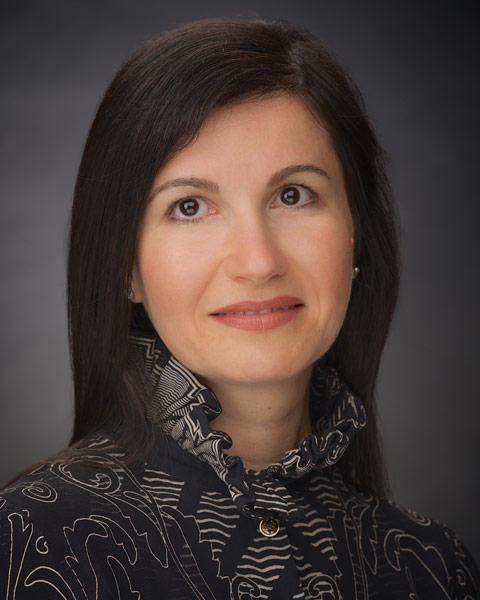
Vania Rudolf
MD, MPH, DFASAM
Vania Rudolf, MD, MPH, DFASAM is a family and addiction medicine physician who is providing care to pregnant and parenting women with substance use disorder. She has a background in family medicine with OB and has completed Fellowships in Integrative Medicine, Addiction Medicine and High Risk Obstetrics at Swedish Medical Center. She has earned public health training at the UW. Dr. Rudolf continues to be a compassionate advocate for improving kind non-judgmental services and removing barriers to care. Providing compassionate trauma-responsive care to vulnerable women, babies and families is the primary focus of her practice in addition to clinical research related to clinical outcomes for substance use disorder, transition to MAT and prescribing policies to optimize safe and adequate postpartum analgesia management. She is the Medical Director for Addiction Recovery Services at Swedish Medical Center, an assistant professor at University of Washington, Seattle, WA and the Chair for the National Womens' Addiction Group related to the American Society of Addiction Medicine. She serves on the maternal mortality review board for the state of Washington and has many years as a practicing clinician.
No Relevant Financial Disclosures
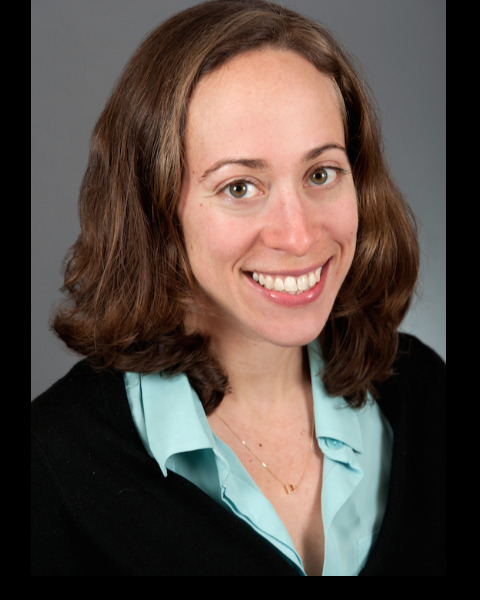
Davida Schiff
MD, MSc
Davida Schiff, MD, MSc is a general academic pediatrician and health services researcher focused on understanding how substance use in pregnant and parenting women impacts the health of children and families. She is the Medical Director of the HOPE Clinic (Harnessing support for Opioid and substance use disorder in Pregnancy and Early childhood) at Massachusetts General Hospital, a multidisciplinary program caring for women and families with substance use disorder from the time of conception through the first two years postpartum.
Dr. Schiff completed her undergraduate training at Columbia University, medical training at the Boston University School of Medicine, pediatrics residency in the Boston Combined Residency Program at Boston Medical Center and Boston Children’s Hospital, general pediatrics research fellowship at Boston Medical Center, and master’s program in health services research from the Boston University School of Public Health. Her research is focused on improving care for families affected by substance use and her past scholarship has been published in the New England Journal of Medicine, JAMA, Pediatrics, Academic Pediatrics, JSAT, and Substance Abuse, among other journals. She is an Instructor in Pediatrics at Harvard Medical School.
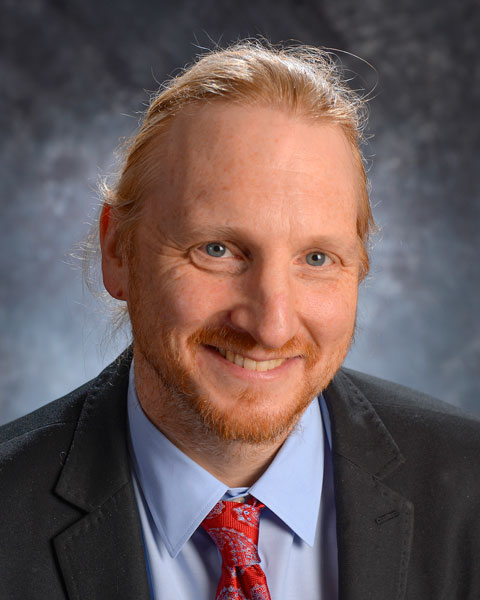
Mishka Terplan
MD, MPH, FACOG, FASAM
Mishka Terplan, MD, MPH, FACOG, FASAM is board certified in both obstetrics and gynecology and in addiction medicine. His clinical, research and advocacy interests lie along the intersection of reproductive and behavioral health. He attended medical school at the University of California, San Francisco, Residency at the University of Southern California, and completed a research fellowship at the University of North Carolina, Chapel Hill. He was previously a Professor in both Obstetrics and Gynecology and Psychiatry and the Associate Director of Addiction Medicine at Virginia Commonwealth University. He is currently the Associate Medical Director of Friends Research Institute and he is a clinician for the National Clinician Consultation Center Substance Use Warmline. He additionally serves as Deputy Chief Clinical Officer for the Department of Behavioral Health, Washington DC. He is the Addiction Medicine Consultant for DMAS (Department of Medicaid Services, VA) and a consultant for the National Center on Substance Abuse and Child Welfare. Dr. Terplan has active grant funding and has published over 70 peer-reviewed articles with recent emphasis on health disparities, stigma, and women’s access to treatment. He has spoken before the United States Congress and has participated in expert panels at CDC, SAMHSA, ONDCP and NIH primarily on issues related to gender and addiction.
No Relevant Financial Disclosures
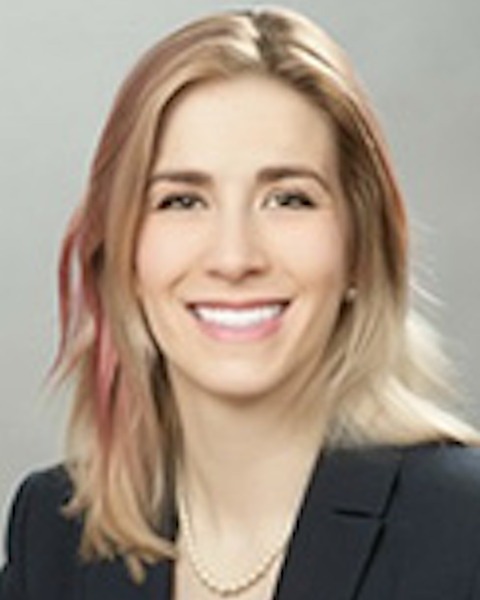
Hillary A. Tamar
MD
Hillary Tamar, MD attended Marquette University in Milwaukee, Wisconsin for her undergraduate studies, and to this day, Milwaukee feels like home. During college, she volunteered at the Latino Community Center in Milwaukee, which was both her first hands-on experience with the inequality affecting impoverished communities and the beginning of her passion for working with the underserved.
After college, she attended Chicago Medical School. During her medical studies, she signed up for an elective at a residential treatment center specializing in substance use. The time she spent with patients there sparked her interest in Addiction Medicine, which only blossomed further during her three years of Family Medicine residency training in Phoenix, Arizona.
In regards to her fellowship in Addiction Medicine at Swedish Medical Center, Hillary is thrilled to be able to work with substance dependent pregnant women. Her other interests include comprehensive family medicine, adolescent health, harm reduction, and medical education. Her favorite thing about medicine is getting to know her patients, and she looks forward to advocating for people that use substances in a society that discriminates against them.
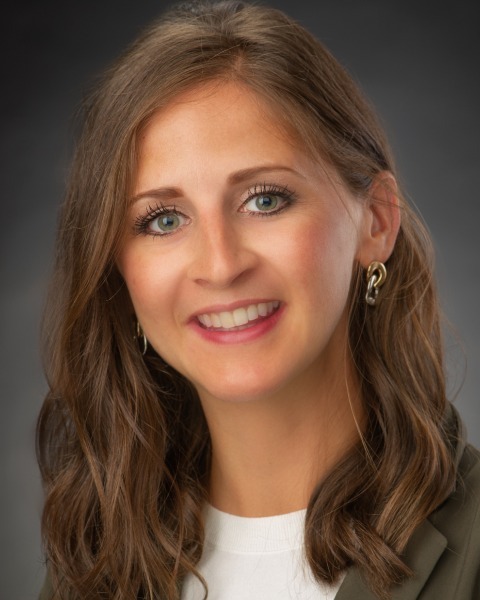
Katherine N. DeJong
MD
Katherine DeJong, MD is an OB/GYN and an Addiction Medicine Fellow at Swedish Medical Center in Seattle, WA. She received her B.A. in Neuroscience from Pomona College and worked at the National Institute of Mental Health for two years after college. She then attended the University of Washington School of Medicine, where she participated in the Underserved Pathway. She graduated from her residency in Obstetrics and Gynecology at Oregon Health & Science University in 2020. She strives to provide comprehensive, holistic and compassionate patient-centered care to all women throughout their lifetime. She is particularly passionate about advocacy and education.
CME, CE, CEU and Other Credit Types

ACCME Accreditation Statement
The American Society of Addiction Medicine is accredited by the Accreditation Council for Continuing Medical Education (ACCME) to provide continuing medical education for physicians.
AMA Credit Designation Statement
The American Society of Addiction Medicine designates this enduring material for a maximum of 1.5 AMA PRA Category 1 Credits™. Physicians should claim only the credit commensurate with the extent of their participation in the activity.
American Academy of Physician Assistants
This activity has been reviewed by the AAPA Review Panel and is compliant with AAPA CME Criteria. This activity is designated for 1.5 AAPA Category 1 CME credits. Approval is valid from 5/26/2021 to 5/26/2022. PAs should only claim credit commensurate with the extent of their participation. AAPA reference number: CME-202755.
NAADAC, the Association for Addiction Professionals
This activity has been approved by the American Society of Addiction Medicine, as a NAADAC Approved Education Provider, for educational credits. NAADAC Provider #295, ASAM is responsible for all aspects of the programming.
California Association for Drug/Alcohol Educators (CAADE)
This educational program is approved by CAADE: #CP40 999 1222.
California Association of DUI Treatment Centers (CADTP)
This educational program is approved by CADTP: #205.
California Consortium of Addiction Programs and Professionals (CCAPP)
This educational program is approved by CCAPP: #OS-20-330-1222.
Continuing Education Credits (CEUs)
Non-physician participants will receive a certificate of attendance upon completion of the activity and an online evaluation confirming their participation. Participants should submit his/her certificate of attendance to their professional organization/institute.
Maintenance of Certification (MOC) or Continuing Certification Programs (CCP)
American Board of Medical Specialties (ABMS)
Through the American Board of Medical Specialties (“ABMS”) ongoing commitment to increase access to practice relevant Continuing Certification Activities through the ABMS Continuing Certification Directory, The ASAM Virtual.2021 has met the requirements as a MOC Part II CME Activity (apply toward general CME requirement) for the following ABMS Member Boards: Allergy and Immunology, Anesthesiology, Colon and Rectal Surgery, Family Medicine, Medical Genetics and Genomics, Nuclear Medicine, Physical Medicine and Rehabilitation, Plastic Surgery, Preventive Medicine, Psychiatry and Neurology, Radiology, Thoracic Surgery, Urology
American Board of Preventive Medicine (ABPM)
The American Board of Preventive Medicine (ABPM) has approved this activity for a maximum of 1.5 credit towards ABPM MOC Part II requirements.
American Board of Anesthesiology (ABA)
This activity contributes to the CME component of the American Board of Anesthesiology’s redesigned Maintenance of Certification in Anesthesiology TM (MOCA®) program, known as MOCA 2.0®.
American Board of Pediatrics (ABP)
Successful completion of this CME activity, which includes participation in the activity, with individual assessments of the participant and feedback to the participant, enables the participant to earn a maximum of 1.5 MOC point in the American Board of Pediatrics’ (ABP) Maintenance of Certification (MOC) program. It is the CME activity provider’s responsibility to submit participant completion information to ACCME for the purpose of granting ABP MOC credit.
American Board of Internal Medicine (ABIM)
Successful completion of this CME activity, which includes participation in the evaluation component, enables the participant to earn up to 1.5 Medical Knowledge MOC point in the American Board of Internal Medicine’s (ABIM) Maintenance of Certification (MOC) program. Participants will earn MOC points equivalent to the amount of CME credits claimed for the activity. It is the CME activity provider’s responsibility to submit participant completion information to ACCME for the purpose of granting ABIM MOC credits.
American Board of Surgery (ABS)
Successful completion of this CME activity, which includes participation in the evaluation component, enables the learner to earn credit toward the CME and/or Self-Assessment requirements of the American Board of Surgery’s Continuous Certification program. It is the CME activity provider's responsibility to submit learner completion information to ACCME for the purpose of granting ABS credit.
American Board of Psychiatry and Neurology (ABPN)
Successful completion of this CME activity can be used to satisfy the American Board of Psychiatry and Neurology’s (ABPN) CME requirement for Maintenance of Certification program.
American Board of Addiction Medicine (ABAM)
Successful completion of this activity can be used to satisfy the American Board of Addiction Medicine (ABAM) Tmoc credit requirements.
Royal College of Physicians and Surgeons of Canada (RCPSC)
Royal College Fellows can use participation in Accredited Continuing Medical Education to earn Section 3 Credits.
CME Committee, Program Planning Committee, and Faculty Disclosure Information
In accordance with disclosure policies of ASAM and the ACCME, the effort is made to ensure balance, independence, objectivity, and scientific rigor in all CME activities. These policies include mitigating all possible relevant financial relationships with ineligible companies for the Planning Committees, CME Committee, MEC, and Faculty. All activity Planning Committee members and Faculty have disclosed relevant financial relationship information. The ASAM CME Committee has reviewed these disclosures and determined that the relationships are not inappropriate in the context of their respective presentations and are not inconsistent with the educational goals and integrity of the activity.

